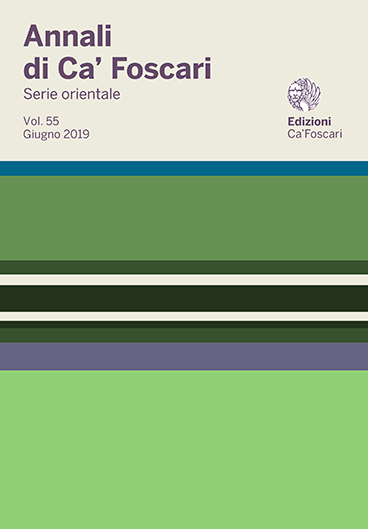
- search 369 views
- file_download 37 download
- keyboard_capslock metadata
-
mark_email_readIscriviti alla newsletter
Corpo e lamento funebre
Alcune riflessioni sulla traduzione dell’Agiavilāpa dell’indologo Giuseppe Turrini (1826-1899)
abstract
Ernesto De Martino’s theorization and the considerations on the ‘crisis of presence’ represent a milestone in the field of Religious Studies. The crisis reveals itself in the daily events of the human being, such as death. Starting from the methodological frames provided by de Martino’s studies on the lament in ancient world, and the recent attention dedicated to the bodies, this article will analyse one of the most famous episode of kāvya literature as translated by nineteenth-century Italian Indologist Giuseppe Turrini: King Aja’s lament (vilāpa) upon his wife Indumatī, and particularly the stanza of Raghuvaṃa 8.43. The Italian translation reveals some element related to the Western opposition between body and soul, which challenge the original attention paid by Kālidāsa and the ancient Greek literature to the physiological effects produced by suffering.
Keywords: Ernesto de Martino • Ajavilāpa • Funerary lament in ancient world • Raghuvaṃśa • Body



